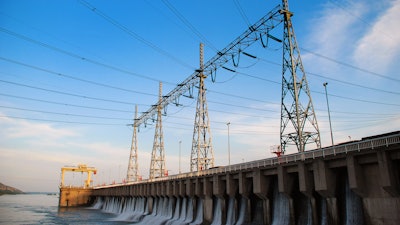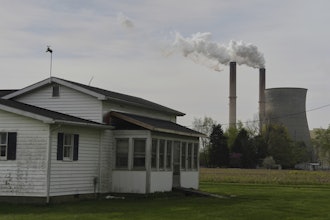
BOSTON (AP) — Attorneys for conservation organizations and an electric utility clashed Tuesday before a federal appeals court over the adequacy of environmental reviews of a key portion of a power transmission project in western Maine.
An attorney for three conservation groups disputed the thoroughness of the U.S. Army Corps of Engineers and suggested its review was handled differently from those of other projects. But Central Maine Power said the federal agency properly found there was no significant impact.
The Sierra Club, the Natural Resources Council of Maine and the Appalachian Mountain Club are seeking to stop the New England Clean Energy Connect while they pursue a lawsuit seeking a more comprehensive environmental review by the Army Corps of Engineers.
The $1 billion project would provide a conduit for up to 1,200 megawatts of Canadian hydropower to reach the New England power grid.
Three judges for the 1st U.S. Circuit Court of Appeals at times expressed exasperation over complexities of the arguments relating to he review process and separate environmental assessments by the Department of Energy and the Army Corps of Engineers.
The Army Corps focused on waters and wetlands while the DOE focused on the big picture. This week, the conservation groups sought to add the DOE to its lawsuit, saying it rushed its approval for the cross-border connection in the final days of the Trump administration.
Kevin Cassidy, a lawyer with Earthrise Law Center, argued that both reviews were flawed. The Army Corps' review was inadequate and its review was relied upon by the DOE for its assessment, he said.
The Army Corps gave its approval in November and the DOE awarded a presidential permit in January. The project also has approvals from the Maine Department of Environmental Protection, Maine Land Use Planning Commission and Maine Public Utilities Commission.
Much of the 145-mile project (233-kilometer) project calls for widening existing corridors, but the litigation focuses on a new swath to be cut through 53 miles (85 kilometers) of remote woods in western Maine.
Supporters say the power lines would reduce carbon pollution and stabilize electricity prices in New England, but critics say it would forever damage a stretch of wild forests in western Maine.
All of the land except for a one-mile stretch is owned by Central Maine Power, which is behind the project. A judge has ordered the state to reassess 1-mile portion that would utilize leased land.
Critics have collected enough signatures to force a statewide referendum this November if lawmakers decline to intervene.






















